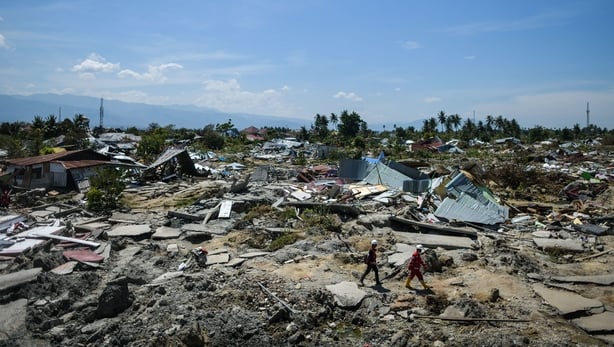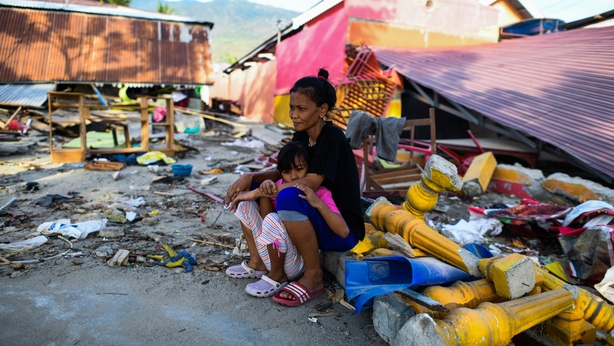The United Nations has said it is seeking $50.5m "for immediate relief" to help victims of the devastating earthquake and tsunami in Indonesia.
The UN plan, developed in consultation with Indonesian government officials, outlines "how the humanitarian community working in the country will provide targeted, technical assistance".
More than 1,500 people died in last week's disaster.
Local officials have said that more than 1,000 people could still be missing.
Hardest-hit was Palu city on Sulawesi island, which was left in ruins after it was struck by a powerful quake and a wall of water that reduced whole neighbourhoods to piles of wood and twisted metal.
The UN plan aims to provide help to 191,000 people over the next three months, the statement said.
According to UN estimates, 65,000 homes have suffered some form of damage, a figure that includes 10,000 homes "completely destroyed by the tsunami" and 15,000 homes severely damaged by the earthquake.
"One week after the disaster, the full scale of the disaster and the needs are becoming clear," said Anita Nirody, the UN Resident Coordinator in Indonesia.
"Affected people, especially those who have lost their homes and all their belongings, require shelter, access to clean water, healthcare and psychosocial support."
The requested funding "will allow the international humanitarian community to more effectively support the response of the government and local organisations," she said.

International help in searching for survivors has gathered pace, but communities in more remote areas have been cut off by broken roads, landslides and crippled communications, leaving people increasingly desperate for basic needs as aid has only just begun to trickle through.

"We estimate there were over 1,000 houses buried, so maybe more than 1,000 people are still missing," Yusuf Latif, a spokesman for Indonesia's search and rescue agency said.
He was referring to the vast Balaroa government housing complex that was flattened by the quake.
"But we still cannot be sure because there's a possibility that some people managed to get out," he said.
"There are so many challenges with this disaster, it's never been so bad," said Frida Sinta, an aid volunteer trying to get basic food and other supplies out to fellow residents of Palu.
The city, 1,500km northeast of Indonesia's capital Jakarta, has teetered close to chaos this week, without breaks of looting, but a recovery was evident as some shops and banks reopened and a major mobile phone network was back up.
Orderly queues formed at petrol stations after the arrival of fuel shipments and late in the day, traffic lights and televisions flickered back to life as the power came back on.
The improvements are helping with the aid effort.
"We carry whatever we can by car or motorbike within the city wherever we can. But not yet to the most inaccessible places," Ms Sinta said.
Altogether, the badly affected areas in the disaster zone include some 1.4 million people.

